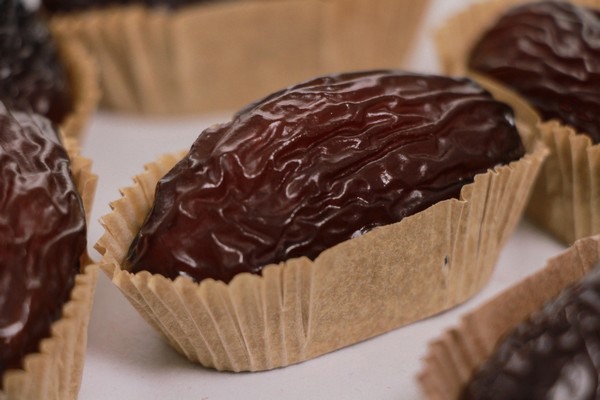Jordan with its production of mainly Medjool and Barhi dates -400 meter below sea level is set to increase production volumes and reach more markets in Europe. The country, ranked 9th in worldwide Date exports in value, is enjoying increased Ramadan sales says Eng. Anwar Haddad, Chairman of the Jordan Dates Association (JODA).
“The current demand and consumption of our dates before 5 years was about 1-2 kg per day per capita, but nowadays it increased to 3 and a half kg’s per capita. During Ramadan 40% of the consumption of dates demand is locally as well as regionally. We are exporting to market about 11,000 tons yearly. We have the high potential of the demand in the Gulf region and even internationally in Europe, France and the UK, it's increasing. Eid is in the next week, we don’t expect demand to increase more than it has during this last week of Ramadan,” states Haddad.

He says Jordan, with about 500 date producers, exports to the Gulf region as their main market. “We export to the UK, to the EU in France and Netherlands and even Australia. There is potential to reach new markets in Eastern Europe. We are expecting to expand our markets in the next coming season,” says Haddad.
The majority of Jordan’s date producers, about 350, are situated in the Jordan Valley. They have small to medium sized farms. Facilities for sorting and packing, 10-20 thousand tons a year could be run through these facilities with mostly European machinery.
Due to the good demand Haddad says they will successfully sell Jordan’s 30 000 tons of dates that consist mainly of the Medjool and Barhi date varieties. Other varieties of dates are imported.
“Fortunately, we don’t have much stock for the rest of the year. The new season starts again in September. Some producers will keep up to 10%-15% of the produce as they believe prices will rise after Ramadan where there’s a possible a shortage. We are expecting production to increase yearly by about 10-15% per year,” states Haddad.
“Our share in international market is about 15% of exported market of Medjool in the globe. This will be affected by new planting in the region, like Egypt and Morocco. Jordan dates are very special and unique, you will not find it anywhere in the region. We grow dates at -400 meters below sea level. The Jordan Valley is next to the Dead Sea with high pressure and oxygen content that is not repeated in the world. This offers a very unique date that is plummy, very thick flesh with very big sizes, very unique in squeeze and taste due to the climate.”
Challenges
“We believe we are on the right track regarding demand in the global market, including high quality, food safety parameters are being considered. Most farms have good agriculture practices, BRC and other international certifications. We are looking for more improvement and development along the value chain.
"We have some challenges, the labour costs is high at 70% of production costs. About 40% of the labour force is women, who do sort and post-harvest practices. Nowadays we have very well-trained groups of women in the valley for pre-sorting. We are looking to adopt machinery for pre-harvest practices, we believe this will minimise the cost of production. Because our production costs are high, we believe our unique produce should be paid a fair price,” emphasise Haddad.
For more information:
Eng. Anwar Haddad
Jordan Dates Association
Tel: +962 7 9666 6212
Email: P@jodates.org
www.jodates.org
